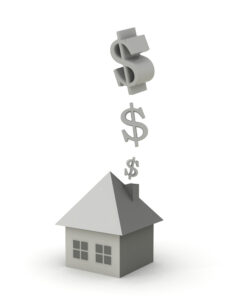
It costs money to heat a home, the same way it does to cool it. You’re used to seeing the seasonal change in your energy bills, both gas and electric, as your HVAC system does more work.
But if you feel that the heating costs you currently pay are higher than they should be … well, you’re probably right. There are many ways that heating costs can start to rise even when the price of energy and your usage remain the same. If you’d like to lower the cost of heating your home this winter, we can help with these tips.
Never skip heating maintenance
This is the most effective way to stop a rise in winter heating costs. Your heating system wears down each winter, and the accumulation of strain and dirt on it will cut into its energy efficiency, lowering the system’s efficiency by around 5% per year. Maintenance lessens the effects of wear and tear and slows down the heater’s aging. Maintenance is often done in fall, but it’s not too late to have it done—just make sure it receives maintenance each year.
Never delay any heating repair
A malfunctioning heating system may still deliver the heat you need, but it will cost more to run. This is why we stress with our customers to always act fast to schedule heating repair in Jacksonville, AR as soon as they detect anything wrong, such as strange noises or odors from the heater, short cycling, or cold spots around the house.
Change the air filter on a regular schedule
The air filter for your heating system prevents debris from getting inside its cabinet and damaging it. But after one to three months, the filter will become so congested that it restricts airflow into the heating system and will force the heater to expend more energy to work. A clogged filter can cause plenty of other problems, so get into a regular schedule to change the filter every one to three months.
Set the thermostat at a steady, lower temperature
Moving the thermostat’s setting up and down throughout the day trying to find a good temperature will cause the heater to waste more energy as it turns on and off frequently. It’s more energy-efficient to have the thermostat stay at one setting during the day, with a setback temperature of around 8° at night or when people are not at home. (Don’t turn the heater completely off when you’re gone, since it will take more energy to heat it back up when you return.) An ideal temperature for energy savings is 68°F during the day.
Close the doors to unused rooms
This is a piece of advice that we don’t see that often, but it can make a real difference. Closed doors will help keep heat from the rest of the house from entering into areas where it isn’t needed, and this slows down heat loss due to heat dissipation.
Dewees HVAC proudly serves the Conway area. Call us when you need heating assistance—we are here to keep you comfortable!
